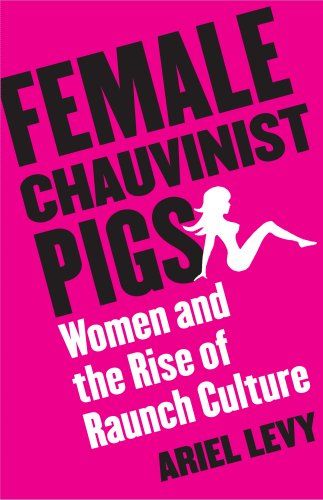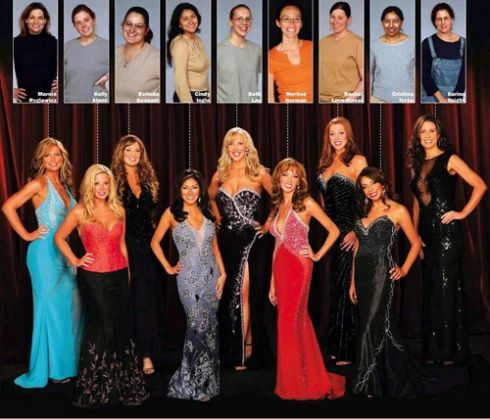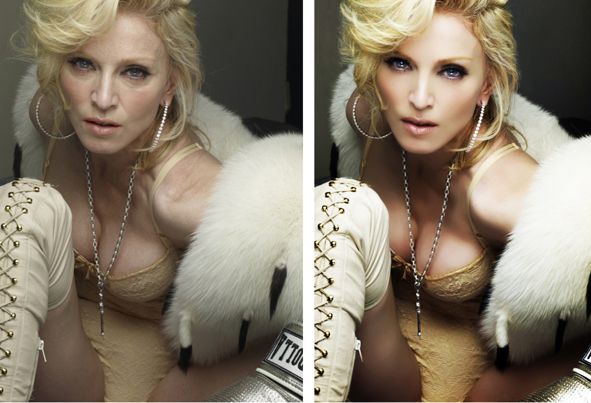Recent Comments
- Andy Bowden on Class politics or anti-semitic conspiracies? Why David Icke, Ron Paul and Alex Jones are dangerous to the Occupy Movement.
- Andy Mc on Class politics or anti-semitic conspiracies? Why David Icke, Ron Paul and Alex Jones are dangerous to the Occupy Movement.
- declan on For a Radical Independence Movement.
- Andy Bowden on For a Radical Independence Movement.
- arm 'n' hammer on For a Radical Independence Movement.
Tags
afghanistan austerity britain BNP climate change Con Dem coalition demonstration drugs economy edinburgh education elections environment events evil megacorps fascism feminism fighting cuts glasgow greece health internet knobheads Labour Lib Dems moral panic music news police protest racism science SDL sexism sexuality SNP strikes tabloids Tories tv unemployment unions USA war women's rights workers' rightsArchives
- June 2012
- May 2012
- March 2012
- January 2012
- December 2011
- November 2011
- October 2011
- September 2011
- August 2011
- July 2011
- June 2011
- May 2011
- April 2011
- March 2011
- February 2011
- January 2011
- December 2010
- November 2010
- October 2010
- September 2010
- August 2010
- July 2010
- June 2010
- May 2010
- April 2010
- March 2010
- February 2010
- January 2010
- December 2009
- November 2009
- October 2009
- September 2009
- August 2009
-
Authors
- admin
- And
- Andy Bowden
- Brogan
- CelticEwan
- David
- David Ward
- Erofeeva
- Euan Benzie
- Frenchie
- ImSpartacus
- Jack
- James McIntyre
- James N
- Kirsty Kane
- Liam M
- Liam T
- lovebug
- LydiaTeapot
- Meghan
- Muzza
- Neil B
- neldo
- Sarah
- Scottish Socialist Youth
- Snowball
- Socialist Pharmacist
- Sophie
- Squeak
- Stuart
- syebot
- TheWorstWitch
- Wavejumper
“We don’t know how to exist anymore without imagining ourselves as a picture”
 We live in a world where at every turn we are constantly bombarded with images of ‘perfection’. Whether we choose to believe this affects us or not is solely the opinion of the individual, but how can today’s society not see the dangerous and drastic effects caused by this consumer culture it is so engulfed within? This seems to have become our way of life, continuously judging and comparing ourselves against how we appear, or believe we should appear, when put side by side with images printed in magazines or displayed on a computer screen. Popular culture perpetuates identity norms, focusing on the portrayal of women and the constant need to change oneself, physically and mentally, in order to emulate the seemingly flawless images, created by the media.
We live in a world where at every turn we are constantly bombarded with images of ‘perfection’. Whether we choose to believe this affects us or not is solely the opinion of the individual, but how can today’s society not see the dangerous and drastic effects caused by this consumer culture it is so engulfed within? This seems to have become our way of life, continuously judging and comparing ourselves against how we appear, or believe we should appear, when put side by side with images printed in magazines or displayed on a computer screen. Popular culture perpetuates identity norms, focusing on the portrayal of women and the constant need to change oneself, physically and mentally, in order to emulate the seemingly flawless images, created by the media.
With the vast growth of the Internet ‘self image’ has turned into a worldwide phenomenon, causing women, in particular, to concentrate on an unhealthy need to continuously present the best, most attractive, images of themselves, both online and in person. With the rise of social networking sites like Facebook, Bebo and Myspace, physical appearance has quickly become the focus of our everyday lives. People have adapted their personalities and personal profiles to conform to societies ideas of ‘beauty’, ‘youth’ and ‘perfection’ causing “our bodies [to] become increasingly distanced in images, increasingly viewed as ‘resources’ and increasingly lived as ‘things’ to be seen, managed and mastered.” Which is the reality? The ‘people’ we present via these Internet profiles or the physical being or body that is presented in the real world. These online networking sites give us the time and control to portray ourselves exactly how we want, allowing us to edit photographs before they are broadcast to the masses or simply avoid uploading images we believe to be substandard. They allow us to manage aspects of our lives that when human contact is involved, we cannot. However, the muting of our physical selves does not just stop with photographs, with most people mentioning their best assets alongside some witty or well thought through, ‘about me’. It seems we have become obsessed with perfecting these virtual versions of ourselves.
Our deranged ideas of ‘perfection’ continue on from the computer screen, and stem from the millions of images presented to us on a daily basis through advertising and the media. “The tendency in late capitalist culture is for our bodies to become objects and commodities,” and because of this women are unknowingly forced into becoming a ‘product’ in order to prove their self worth. Which according to adverts like L’Oréal ‘because you’re worth it’ is determined by our external beauty and apparent youthfulness. Buying these products will not now, or ever miraculously turn the consumer into Cheryl Cole or Penelope Cruz, yet we are still spending outrageous sums of money in order to try and achieve the unachievable, this polished end product conceived by the minds of white heterosexual males. Predominantly male ran magazines such as FHM, Nuts and Front falsely convince men that a Barbie doll figure consisting of a tiny waist and a massive chest is true beauty. So how hard can it be for women to conform to such an ‘easy’ fantasy? In 2006 Dove tried to open our minds with its campaign for ‘real beauty’, with a television advert named ‘Evolution’ a short stop motion movie showing the before and after of a commercial beauty advert and coming to the conclusion that ‘No wonder our perception of beauty is distorted.’
 However, with only one company trying to break away from these ‘perfection’ stereotypes the remainder of our consumer culture is yet to sit up and listen. Our addiction for beauty is furthermore fed by television series such as Desperate Housewives and Sex and the City, both shows based around women conforming or trying to conform to societies vision of perfection. Programs like these, although slightly exaggerated, mirror the way women are living within our culture today, with all main characters at some point showing their frustration when explaining that there is always someone more ‘beautiful’ that themselves. With episode titles such as, ‘Models and Mortals’ and statements like ‘I just know no matter how good I feel about myself, if I see Christy Turlington, I just want to give up,’coming from the mouths of women we look up to and aspire to look like, it becomes harder to prevent beauty from being societies driving force.
However, with only one company trying to break away from these ‘perfection’ stereotypes the remainder of our consumer culture is yet to sit up and listen. Our addiction for beauty is furthermore fed by television series such as Desperate Housewives and Sex and the City, both shows based around women conforming or trying to conform to societies vision of perfection. Programs like these, although slightly exaggerated, mirror the way women are living within our culture today, with all main characters at some point showing their frustration when explaining that there is always someone more ‘beautiful’ that themselves. With episode titles such as, ‘Models and Mortals’ and statements like ‘I just know no matter how good I feel about myself, if I see Christy Turlington, I just want to give up,’coming from the mouths of women we look up to and aspire to look like, it becomes harder to prevent beauty from being societies driving force.
Youth and beauty have rapidly become two words women seem to be stuck in a vicious circle with. So much of our time is spent trying to catch up with something that always seems just an arms reach away. If Madonna can do it, where are we going wrong? However, we are forgetting a couple of the vital elements of the ‘beauty’ regime, Photoshop and Money. Unlike these celebrities we idolise, we are not ‘lucky’ enough to wake up to a personal trainer and an entire squad of trained personnel to adhere to every one of beauty wants and needs. The closest most of us will ever get to this ‘helping’ hand is from magazines aimed at the female market such as Heat, Reveal and Closer, who dedicate around one hundred and fifty pages a week in order to ‘help’ us follow the eating habits and training patterns of Cheryl Cole and Coleen Rooney. In order to try and feel better about our own body image we grab these cheap yet appalling magazines off the shelves like they’re going out of fashion, religiously turning through pages titled ‘bikini bodies 2010, the good the bad and the WEIRD!’ and ’Kerry falls off the diet wagon AGAIN!’
The effect these magazines and images have on us is not however a positive one. The bikini bodies being slated are in fact normal, healthy womanly figures, which we are being lead to believe, are somewhat flawed and unfortunately these lies don’t just stop with tacky magazines. Photoshop has become a vital tool for our consumer culture, with no image being shown to the public left un-touched. These images we are trying so hard to emulate will always be beyond our reach.
So why is it that “Between 1992 and 2004, breast augmentation procedures in this country went from 32,607 a year to 264,041 a year – that’s an increase of more than 700 percent,” and girls as young as sixteen are opting to drastically and permanently change their physical appearances to feel beautiful? Not yet
 out of my teens I already know three young, gorgeous girls who have taken their bodies under the knife in order to achieve a more ‘womanly’ and ‘beautiful’ figure. These three individuals all work in the Glamour Modeling or Pole Dancing industries, where the need to appear ‘porn star perfect’ comes before ones physical or mental condition. They are convinced these risks must be taken in order to ‘make it’. The rise in television channels showing back-to-back episodes of Extreme Makeover and The Swan a “reality series… in which average-looking women were surgically, cosmetically and sartorially redone to look average in a shiner, pornier way” have driven women to conform to this false idea of ‘perfection’. We are once again taken back to these physical images the media are selling to us as examples of ‘beauty’ and ‘freedom.’ Ideas conjured up by heterosexual males in our society, and passed back to us as ‘our own’. Women have been lead to believe that looking like Pamela Anderson is a healthy objective to aim for and with the rise in ‘quickie surgeries’ like Lunch hour Botox it seems we have whole heartedly taken on the impossible task of achieving what this male dominated society is asking of us. Women have been manipulated into believing that achieving the best body, even if it means resorting to plastic surgery, is empowering and sexually liberating. Together with the explosion of pole dancing and burlesque classes, which are now offered in most gyms as a sexy and creative way to express oneself, women are slowly being removed from their own comfort zones and molded into objects of male sexual desire. With seemingly confident spokespeople for the sex industry, including Jenna Jameson, author of ‘How to Make Love like a Porn Star’ saying that, “ ‘being in the industry can be a great experience’ because ‘you can actually become a role model for women’ ” proves just how naïve women in today’s society have become. In the book Female Chauvinist Pigs, author Ariel Levy goes on to explain that “Jameson like most employees of the sex industry is not sexually uninhibited, she is sexually damaged” as Jameson tells her she was,
out of my teens I already know three young, gorgeous girls who have taken their bodies under the knife in order to achieve a more ‘womanly’ and ‘beautiful’ figure. These three individuals all work in the Glamour Modeling or Pole Dancing industries, where the need to appear ‘porn star perfect’ comes before ones physical or mental condition. They are convinced these risks must be taken in order to ‘make it’. The rise in television channels showing back-to-back episodes of Extreme Makeover and The Swan a “reality series… in which average-looking women were surgically, cosmetically and sartorially redone to look average in a shiner, pornier way” have driven women to conform to this false idea of ‘perfection’. We are once again taken back to these physical images the media are selling to us as examples of ‘beauty’ and ‘freedom.’ Ideas conjured up by heterosexual males in our society, and passed back to us as ‘our own’. Women have been lead to believe that looking like Pamela Anderson is a healthy objective to aim for and with the rise in ‘quickie surgeries’ like Lunch hour Botox it seems we have whole heartedly taken on the impossible task of achieving what this male dominated society is asking of us. Women have been manipulated into believing that achieving the best body, even if it means resorting to plastic surgery, is empowering and sexually liberating. Together with the explosion of pole dancing and burlesque classes, which are now offered in most gyms as a sexy and creative way to express oneself, women are slowly being removed from their own comfort zones and molded into objects of male sexual desire. With seemingly confident spokespeople for the sex industry, including Jenna Jameson, author of ‘How to Make Love like a Porn Star’ saying that, “ ‘being in the industry can be a great experience’ because ‘you can actually become a role model for women’ ” proves just how naïve women in today’s society have become. In the book Female Chauvinist Pigs, author Ariel Levy goes on to explain that “Jameson like most employees of the sex industry is not sexually uninhibited, she is sexually damaged” as Jameson tells her she was,
“beaten unconscious with a rock, gang raped and left for dead on a dirt road during her sophomore year of high school; she was life threateningly addicted to drugs before she was twenty; she was beaten by her boyfriend and sexually assaulted by his friend. She also [says] “To this day, I still can’t watch my sex scenes.’”
When looking into these industries, we are lead to believe it is glamorous and sexually freeing to cut up our bodies and/or strip for a male dominated audience, drawing us all closer, with everyone wanting to experience what it is like to feel powerful and in control of their bodies.
In conclusion we have become so wrapped up in the need to be beautiful that we do not know how to live our lives without it. These images we are bombarded with every day, now control what we do on a day-to-day basis. They are physically running our lives. Until we reach this delusional goal or hopefully realise that what we are reaching is in fact unreachable we are going to continue to spend our time and hard earned money on trying to attain this ‘perfection’ we see in our consumer culture. If this is the reality of what it is to be ‘beautiful’ why do we still feel the need to desperately cling onto, and continuously climb this ladder of ‘perfection’? Surely upon closer inspection, we should realise “that you still can’t bottle attraction.”
Adapted from an essay.
All quotes from ‘Female Chauvinist Pigs‘ by Ariel Levy and ‘The Body and/in Representation, Self/Image by Amelia Jones

“How to Make Love like a Porn Star” Such a self defeating phrase.
Fantastic article, Brogan. I liked how you tackled the idea of women being lured into the sex industry as a means of gaining ‘confidence’.
I think we need to be really, really careful about permanently pathologising women’s behaviour because of abuse they’ve suffered. I have a real problem with Ariel Levy as well, I mean the whole schtick of the book is about how women who are just doing what patriarchy expects of them are somehow fucking the rest of us over, as if we don’t all play along.
body facism is eating away at the psyche of the population ike a cancer. we need to tear down what is undoubtedly a sick and twisted “spend, spend” celebrity culture where all that is important is what moronic TV has-been is sleeping with who.
I’m with Squeak, There has been far too much psychopathology of women’s behaviour with regards to abuse, yes there is cause and effect, but judging women on the abuse they have suffered is a very slippery slope, carefully lubed up by Ariel Levy & others like her.
I think you’ve misread the article if you think the author was judging women based on abuse they’ve suffered. Levy’s book is a reference for this article, it’s not the reasoning behind writing it or the be all and end all of the argument put forward